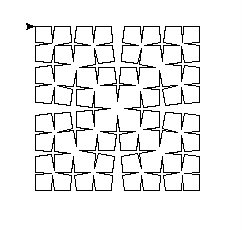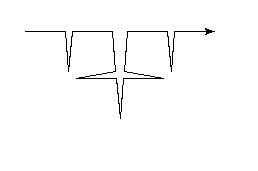One of the major problems that teachers encounter, especially at University, is dealing with badly formulated questions from students. Some questions are almost impossible to answer sensibly and that's often because the goals of students and their teachers are quite different. Frequently the student has the goal I want to pass the next assessment whereas the teach has the goal I want my students to fully understand what I'm teaching them. These aren't the same thing. The former goal can be met just by learning a bunch of facts and examples and developing a bit of exam technique. The latter requires deep thought and sustained interest, but usually leads to better results in assessments and later life. There's a reason why your teachers want you to understand your subject and not just pass the exam -- they want you to better enjoy what your learning, be better prepared for upcoming work and be more successful in your degree and later life.
If you are a student, it's as well to consider how you can ask a good question to get better value from the time you spend in class. Here's a quick guide to doing that, which I hope you'll find helpful.
Remember that you can do your homework
Not only are homework questions set to help you learn, they are specifically devised to help you gain a sense of confidence about your own ability to master your subject and pass the assessment. No question is "impossible" although many will require real thought and creativity on your part. Many students come from school where they were shown techniques (like, "how to write an essay" or "how to prove a theorem by induction") then asked to practice those techniques. Often, homework questions were essentially the same as examples the teacher had described. At University there is a much bigger jump between what you see in lectures and text books and what you are asked to do for homework. You are expected to apply what you've learned in new situations and that leap of creativity will become more demanding as your degree progresses. However, no teacher sets an impossible question. You can do the work you've been set and really you just need to work hard and be persistent to do well.
Understand what the goal is
If you're stuck with a homework question then you need to know what that question is intended to teach you. Usually homework questions relate directly to the learning outcomes of the lectures they go with. Usually they are graded so that they get harder as you go along. Lecturers set questions with the intention that anyone who has completed them all will have understood everything that has been taught and be ready for any assessment on the subject. Homework questions aren't random and they aren't intended to catch you out or give you a hard time. They are set to help you understand your subject better. So, when you're stuck with your homework the first thing you need to ask yourself is "What is this question supposed to teach me?". That should give you a hint about what your lecturer is looking for and where in your notes or reference material you can look for more information.
Read around the subject
At University you are reading for a degree. You need to be aware of the major prior art in your area of study -- that is, you need to have read about the research that other people have done. Read your lecture notes, read text books, read Wikipedia, use Google. Read widely and take notes. Most of what you might be "stuck" on or finding "difficult" has been written about ad nauseum. Read up and you probably won't have to ask your teachers half as much as you thought.
If that sounds like far too much work then remember that you need to be smart about how you read. Art students are usually very good at this -- many of them need to write an essay a week and read at least ten books for each essay. That's at least three hundred books a year. How on earth do they manage it? Well, they don't (despite what you might think) read books all the way through and they don't feel guilty about the parts they've "missed". This came as quite a revelation to me (D'OH!) but it's an essential academic skill and one that doesn't seem to come naturally to science students. The trick is to be directed when you read. Have a goal and read only those parts of the book / website / ... that are necessary to achieve your goal. Try not to get lost in interesting stuff along the way -- if you see something that intrigueues you, just make a note of it and come back later. If you're using RTM then add it to your Read/Review list.
For example, you might be stuck learning about "Turing Machines". A good place to start would be to answer the question "What is a Turing Machine?". Read up on what a Turing Machine is until you can give a clear and succinct answer (then write it down for your revision notes). Next you might want to get a little more detailed and specific and ask yourself other questions. "What can a Turing Machine compute?", "What other machines and languages are equivalent to Turing Machines?", and so on. By the time you've finished you should have a very clear picture of what Turing Machines are all about. If you don't and you still think you need help from a teacher, then you should have a clearer idea of exactly what you don't understand. That should at least help you to ask a more specific and directed question.
Have a go first
If you go to your teacher and say "I can't do this homework question" don't expect your teacher to just give you the answer. Remember, the questions are there to help you learn, they aren't just meaningless hoops to jump though. If you do take this approach, expect your teacher to teach you something about the subject matter and maybe to lead you gently towards answering the question yourself, rather than just giving a straight answer. This should help you reach your "learning outcomes" and to think more independently about the work you are doing.
Better than just saying you "can't" do the question have a go at it and see how far you get. Even if you don't get very far at all your teacher will see how you're approaching the work and that will give him or her a much better idea of where you might be stuck and what you haven't understood. That way, your teacher can help you learn specifically what you need to know, rather than just hoping that at some point during your discussion you'll figure out whatever it is you misunderstood.
Be specific
To get good value from your teachers you need to be clear about what it is you need help with. A vague question like "What is object oriented programming?" or "What is epistemology?" isn't really going to get you very far. Questions like that really require whole books to be written to answer them. Be clear and specific about where you're confused. Do you know what an object is? Are you aware of any philosophies of knowledge? Start with the very basics and figure out the jargon or concept that confuses you and ask about that. If you're so confused that you really don't know what you don't know then go back to your lecture notes or syllabus. You should have a list of "learning outcomes" or something that tells you what you should be learning. Go through each of these and work out which ones you do and don't understand. Then read your lecture notes and reference material and see if you can figure it out for yourself. If not, then ask, but ask something specific. Not "What is object oriented programming?" but "What is a class?" ... Not "What is epistemology?" but "What did Russell mean by knowledge by description?" ... Be clear about what you don't know.
Thursday, 15 December 2005
Friday, 2 December 2005
Fractal curves in Python
We've set our first year students the task of drawing some fractal curves in Python with the fantastic turtle module. Apparently the Dragon curve is a pain, so here's an alternative starting point for anyone getting stuck: the Torn Square curve. I've included shots of part of the curve after one and two recursive calls; just to give an idea of how the shape is constructed.






Subscribe to:
Comments (Atom)
